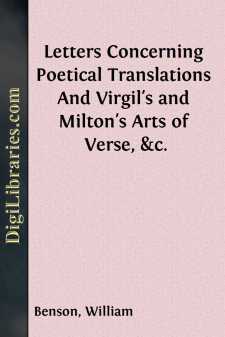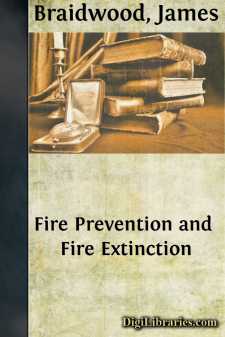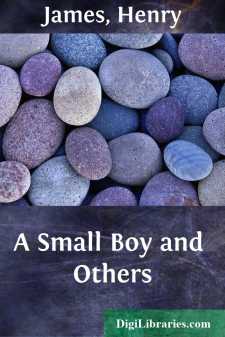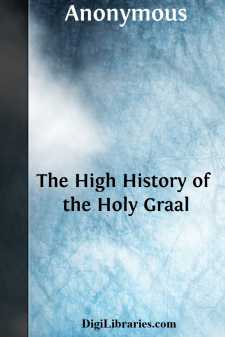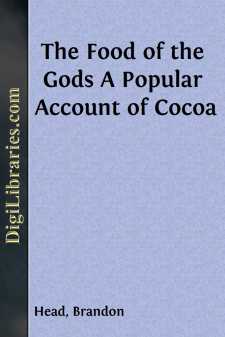Non-Classifiable
- Non-Classifiable 1768
Non-Classifiable Books
Sort by:
by:
William Benson
LETTER I. SIR, am now going to obey your Commands; but you must let me do it in my own way, that is, write as much, or as little at a time as I may have an Inclination to, and just as things offer themselves. After this manner you may receive in a few Letters, all that I have said to you about poetical Translations, and the resemblance there is between Virgil's and Milton's Versification, and...
more...
by:
Thomas Clarkson
CHAP. I. SECTION I. Marriage—Quakers differ in many respects from others, on the subject of Marriage—George Fox introduced Regulations concerning it—Protested against the usual manner of the celebration of it—Gave an example of what he recommended—Present regulations of the Quakers on this subject. In the continuation of the Customs of the Quakers, a subject which I purpose to resume in the...
more...
by:
James Braidwood
The history of mankind, from the earliest times, has been one of alternate peace and war with fire. The immeasurable value of its obedience, and the fearful consequences of its insubordination, have, in all ages, made its due subjection one of the most important conditions of even human existence itself. As camps and trading stations grew into populous cities, the dangers of fire were both multiplied...
more...
WHISTLER STORIES The studios of Chelsea are full of Whistler anecdotes. One tells of a female model to whom he owed some fifteen shillings for sittings. She was a Philistine of the Philistines who knew nothing of her patron's fame and was in no way impressed with his work. One day she told another artist that she had been sitting to a little Frenchman called Whistler, who jumped about his studio...
more...
HYGEIA, A CITY OF HEALTH We meet in this Assembly, a voluntary Parliament of men and women, to study together and to exchange knowledge and thought on works of every-day life and usefulness. Our object, to make the present existence better and happier; to inquire, in this particular section of our Congress:—What are the conditions which lead to the pain and penalty of disease; what the means for the...
more...
CHAPTER I. THE WHISTLE. It was a bright, welcome holiday to little Benjamin Franklin, when his kind parents put some coppers into his pocket, to spend as he saw fit. Possibly it was the first time he was ever permitted to go out alone into the streets of Boston with money to spend for his own pleasure; for he was now but seven years old. "Can I have more coppers when these are gone?" he...
more...
by:
Henry James
A SMALL BOY AND OTHERS I In the attempt to place together some particulars of the early life of William James and present him in his setting, his immediate native and domestic air, so that any future gathered memorials of him might become the more intelligible and interesting, I found one of the consequences of my interrogation of the past assert itself a good deal at the expense of some of the...
more...
by:
Anonymous
INTRODUCTION The completion of the rapid transit railroad in the boroughs of Manhattan and The Bronx, which is popularly known as the "Subway," has demonstrated that underground railroads can be built beneath the congested streets of the city, and has made possible in the near future a comprehensive system of subsurface transportation extending throughout the wide territory of Greater New York....
more...
by:
Anonymous
BRANCH I. Hear ye the history of the most holy vessel that is called Graal, wherein the precious blood of the Saviour was received on the day that He was put on rood and crucified in order that He might redeem His people from the pains of hell. Josephus set it in remembrance by annunciation of the voice of an angel, for that the truth might be known by his writing of good knights, and good worshipful...
more...
by:
Brandon Head
I. ITS NATURE. When one thinks of the marvellously nourishing and stimulating virtue of cocoa, and of the exquisite and irresistible dainties prepared from it, one cannot wonder that the great Linnæus should have named it theo broma, "the food of the gods." No other natural product, with the exception of milk, can be said to serve equally well as food or drink, or to possess nourishing and...
more...


